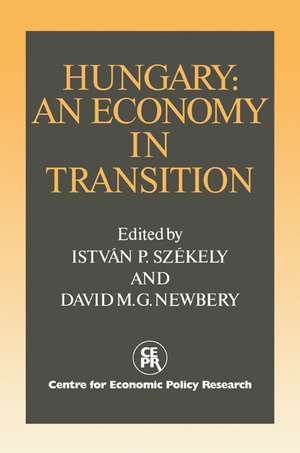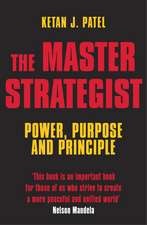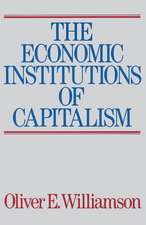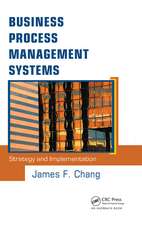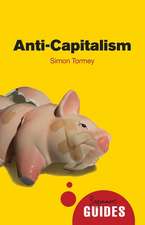Hungary: An Economy in Transition
Autor Istvan Szekely, David M. G. Newberyen Limba Engleză Paperback – 27 ian 2008
| Toate formatele și edițiile | Preț | Express |
|---|---|---|
| Paperback (1) | 323.27 lei 6-8 săpt. | |
| Cambridge University Press – 27 ian 2008 | 323.27 lei 6-8 săpt. | |
| Hardback (1) | 785.97 lei 6-8 săpt. | |
| Cambridge University Press – 27 ian 1993 | 785.97 lei 6-8 săpt. |
Preț: 323.27 lei
Nou
Puncte Express: 485
Preț estimativ în valută:
61.85€ • 64.59$ • 51.08£
61.85€ • 64.59$ • 51.08£
Carte tipărită la comandă
Livrare economică 15-29 aprilie
Preluare comenzi: 021 569.72.76
Specificații
ISBN-13: 9780521057547
ISBN-10: 052105754X
Pagini: 392
Ilustrații: 12 b/w illus. 44 tables
Dimensiuni: 156 x 234 x 21 mm
Greutate: 0.55 kg
Editura: Cambridge University Press
Colecția Cambridge University Press
Locul publicării:Cambridge, United Kingdom
ISBN-10: 052105754X
Pagini: 392
Ilustrații: 12 b/w illus. 44 tables
Dimensiuni: 156 x 234 x 21 mm
Greutate: 0.55 kg
Editura: Cambridge University Press
Colecția Cambridge University Press
Locul publicării:Cambridge, United Kingdom
Cuprins
1. Introduction István P. Székély and David M. G. Newbery; Part I. Foreign Trade: 2. Economic consequences of Soviet disintegration for Hungary László Czaba; 3. Regional cooperation in East-Central Europe Kálmán Mizsei; 4. Export supply and import demand in Hungary: an econometric analysis for 1968–1989 Laszlo Halpern and Istvan P. Szekely; Discussion of Part I Renzo Daviddi; Part II. Privatization and Competition Policy: 5. 10 percent already sold: privatization in Hungary Zsigmond Jarai; 6. Hungary: a unique approach to privatization - past, present and future Peter Mihalyi; 7. Competition policy in transition Janos Stadler; Discussion of Part II John P. Bonin, Rumen Dobrinsky and Paul Seabright; Part III. The Financial System and Private Savings: 8. Short-run money market model of Hungary Julia Kiraly; 9. The modernisation of the Hungarian banking sector Eva Varhegyi; 10. Changing structure of household portfolios in emerging market economics: the case of Hungary, 1970–1989 Istvan Abel and Istvan P. Szekely; Discussion of Part III John P. Bonin, Lucian Ionescu and Colin Mayer; Part IV. Foreign Debt and Monetary Policy: 11. Hungary's foreign debt controversies and macroeconomic problems Gábor Oblath; 12. Managing foreign debt and monetary policy Werner Riecke; Discussion of Part IV L. Alan Winters and Richard Portes; Part V. Legislative and Tax Reform: 13. A legal framework for the Hungarian transition, 1989–1991 Tamás Sárközy; 14. Tax reform in Hungary Jeno Koltay; Discussion of Part V Athar Hussain; Part VI. Labour Markets, Unemployment and Social Security: 15. The transformation of shop floor bargaining in Hungarian industry Janos Kollo; 16. The social security crisis in Hungary Maria Augusztinovics; Discussion of Part VI David M. G. Newbery and David Winter; Part VII. State Desertion: 17. State desertion and convertibility; the case of Hungary Istvan Abel and John P. Bonin; Discussion of Part VII David Begg and R. E. Rowthorn; Conclusion Sir Adam Ridley.
Recenzii
"This excellent volume will be of value to scholars studying the economics of transition. The editors have succeeded in presenting a comprehensive analysis of Hungary's transition from a centrally planned to a market economy." Slavic Review
"This interesting and informative collection of papers represents the proceedings of a 1992 conference held in London. In it, one may find many fascinating discussions...." Choice
"As a presentation of Hungarian views on the Hungarian transition, the book gives information, experiences, and many original insights for the interested reader. It is indispensable reading for those who work on problems of post-socialist economies or developing economies where market institutions are in infancy. The discussion sections, where an international panel of discussants puts the essays into a broader and critical perspective, contribute much to achieve a balanced account of the Hungarian transition strategy." András Simon, Journal of Comparative Economics
"This is a book that no serious student of the Hungarian economy can afford not to have on his or her library shelf. That this work should be considered a reference work is all the more remarkable in view of the fact that it is an edited volume, containing sixteen essays and an approximately equal number of comments on them. It is not often that edited volumes make a lasting contribution to the literature. Equally remarkable, this book is still highly recommended, even though this review is being written more than three years after the February 1992 conference on whose proceedings the volume is based. The useful shelf life of this book should extend well into the next decade." Paul Marer, Review of Social Economy
"This interesting and informative collection of papers represents the proceedings of a 1992 conference held in London. In it, one may find many fascinating discussions...." Choice
"As a presentation of Hungarian views on the Hungarian transition, the book gives information, experiences, and many original insights for the interested reader. It is indispensable reading for those who work on problems of post-socialist economies or developing economies where market institutions are in infancy. The discussion sections, where an international panel of discussants puts the essays into a broader and critical perspective, contribute much to achieve a balanced account of the Hungarian transition strategy." András Simon, Journal of Comparative Economics
"This is a book that no serious student of the Hungarian economy can afford not to have on his or her library shelf. That this work should be considered a reference work is all the more remarkable in view of the fact that it is an edited volume, containing sixteen essays and an approximately equal number of comments on them. It is not often that edited volumes make a lasting contribution to the literature. Equally remarkable, this book is still highly recommended, even though this review is being written more than three years after the February 1992 conference on whose proceedings the volume is based. The useful shelf life of this book should extend well into the next decade." Paul Marer, Review of Social Economy
Descriere
Study of the economic transformation of Hungary, presenting local ideas and perceptions and international analysis.
